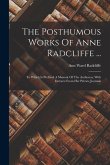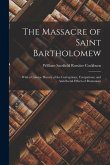Hinweis: Dieser Artikel kann nur an eine deutsche Lieferadresse ausgeliefert werden.
Henry Timrod, born on December 8, 1828, in Charleston, South Carolina, is a distinguished American poet often remembered for his contributions to Confederate literature during the Civil War. Timrod stemmed from a family with German lineage, where his educational journey was marked by both brilliance and the restraints of financial hardship, leading to his withdrawal from the University of Georgia due to monetary constraints. Despite this, his intellectual spark and skill were evident in his literary works. Timrod's involvement with 'The Russell's Magazine' saw his poetry gain a following, however, it was the onset of the Civil War that deeply influenced his canon, with poems such as 'Ethnogenesis' and 'Ode Sung on the Occasion of Decorating the Graves of the Confederate Dead at Magnolia Cemetery, Charleston, S.C., 1867' framing his legacy. His posthumous compilation 'Poems of Henry Timrod; with Memoir' (1873) was edited by fellow poet Paul Hamilton Hayne, offering a poignant window into the Southern experience during a tumultuous period. Timrod's verse is characterized by its romantic imagery, Southern patriotism, and somber reflections on life, nature, and mortality. Scholars often liken Timrod's work to that of the famed English poets Keats and Wordsworth for its rich texture and emotional depth, yet uniquely American in its context and themes. His literary contributions, although overshadowed by the likes of Poe and Whitman, remain critical in understanding the cultural landscape of 19th-century America. Sadly, Henry Timrod's life was as fraught with difficulty as his verses were with beauty, succumbing to tuberculosis on October 7, 1867, in Columbia, South Carolina.








